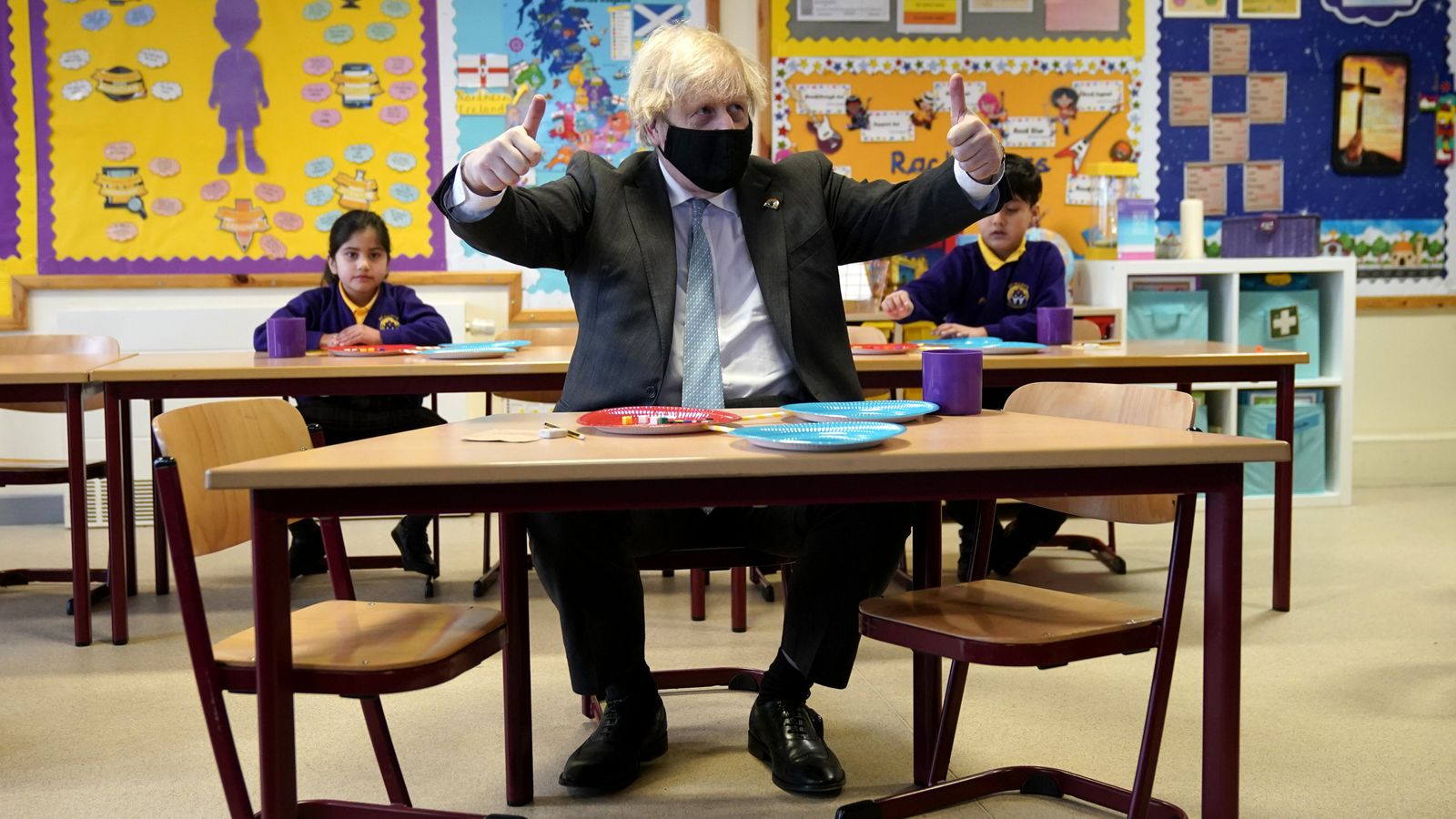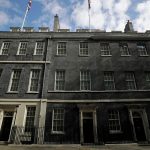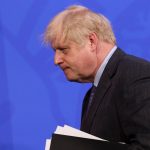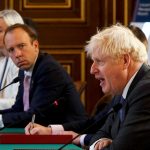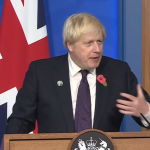A hunt continues for a person in the UK infected with a coronavirus “variant of concern” from Brazil, with the government accused of “unforgivable incompetence” in managing Britain’s borders.
The COVID-19 variant, first seen in the city of Manaus, is feared to spread more rapidly than the original virus and could be more capable of evading existing vaccines.
Three cases of the P.1 coronavirus variant have been confirmed in England and three in Scotland, Public Health England said.
Two of the cases in England come from a household in South Gloucestershire, where one person returned from Brazil in mid-February, before hotel quarantine measures were introduced.
Live COVID updates from the UK and around the world
Sara Blackmore, public health director for South Gloucestershire, said increased testing – including asymptomatic testing – and enhanced contact-tracing had been introduced in the local area.
However, she said the risk to the local community was judged to be “very low” and that the measures were “precautionary”.
“In these cases, what we have here is a variant of concern where there is a potential risk of increased transmission and potential risk for less effectiveness of the vaccine,” she said.
“That’s clearly why we need to act quickly, as we have done, and put in place those control measures to minimise any onward transmission.”
Two other people in the same household have also tested positive for COVID-19, but are not currently judged to have the Brazil variant while tests on their type of coronavirus continue.
Ms Blackmore said: “All the necessary additional testing and follow-up is in place and we wait for further information on that.”
“We’re very certain from the information we’ve had, the travel arrangements and the self-isolation that the individuals have taken is absolutely in line with what’s required,” she added.
Please use Chrome browser for a more accessible video player
The third case in England is unlinked and the whereabouts of the individual unknown, as they did not complete their test registration card, PHE said.
Ms Blackmore said she had not received any information to suggest they might also be in the South Gloucestershire area, with the case being managed by the national incident team.
As part of the hunt for the unidentified third person, anyone who took a test on 12 and 13 February and has not received a result, or has an uncompleted test registration card, is being asked to come forward immediately.
And moves are under way to contact passengers on Swiss Air flight LX318 from Sao Paulo through Zurich to London Heathrow on 10 February.
Those who were passengers on the flight and have not been contacted, are being asked to call 01174 503 174 to arrange a test for themselves and their household contacts.
The three Scottish cases were found in asymptomatic passengers who flew into Aberdeen on the BA1312 flight from London Heathrow on Friday.
They tested positive while self-isolating and contact tracing of other passengers on the flight is currently ongoing.
The Scottish government said there was “no reason to believe” the P.1 variant is in circulation in Scotland.
Please use Chrome browser for a more accessible video player
Prime Minister Boris Johnson first announced plans to toughen the UK’s border measures, including the requirement for those returning from “red list” countries such as Brazil to have to quarantine in hotels, on 27 January.
However, those plans – including added testing requirements – didn’t come into force until 15 February.
Mr Johnson on Monday defended the government’s action to prevent the import of new COVID variants from abroad.
“We have got one of the toughest border regimes anywhere in the world for stopping people coming into this country who may have variants of concern,” he said.
He also denied the government had been too slow to implement mandatory hotel quarantine measures, saying ministers had “moved as fast as we could to get that going”.
The prime minister added a “massive effort” was under way to prevent the spread of the Brazil variant in the UK and said there was “no reason not to think that our vaccines are effective against these variants of concern at the present time”.
He also reassured Britons that PHE “don’t think there is a threat to the wider public” and insisted his roadmap for easing England’s lockdown would not be held up by the discovery of variant cases.
Downing Street stressed there would be no impact on the reopening of schools on 8 March across England.
Labour leader Sir Keir Starmer claimed the government had still not “secured our borders in the way we should have done”.
“It demonstrates the slowness of the government to close off even the major routes, but also the unwillingness to confront the fact that the virus doesn’t travel by direct flights,” he said.
“We know from last summer that a lot of virus came in from countries where it didn’t originate in, but people were coming indirect, and that’s the way people travel.”
Meanwhile, Labour’s shadow home secretary Nick Thomas-Symonds has written to Home Secretary Priti Patel with a series of questions over the government’s border measures.
“This is unforgivable incompetence from the UK government,” he said, as he reiterated the party’s call for a “comprehensive” hotel quarantine regime.
“Despite being warned time and time again, they have failed to act to protect our borders against emerging COVID variants and could put at risk the gains from the vaccine.
“People will be appalled to hear someone with the Brazilian variant cannot be identified, raising questions about how many others may have been missed by quarantine measures.”
Welsh First Minister Mark Drakeford said he would take the “opposite” approach to international travel to the UK government and said COVID cases in Wales last year were “undoubtedly driven up” by people returning from holidays abroad.
“I would do it in the opposite way to the UK government, this is the case I’ve tried to make to them,” Mr Drakeford said.
“The UK government’s approach is that all international travel is OK apart from 33 countries that are on a red list.
“I would do it the opposite. I would say we shouldn’t be having international travel but here is a list of countries where we are confident that things are under control, where there are testing regimes, where we will be confident that people returning from there would not be posing a threat to us.”
Downing Street stressed that under lockdown restrictions, it is currently illegal to go on holiday.
